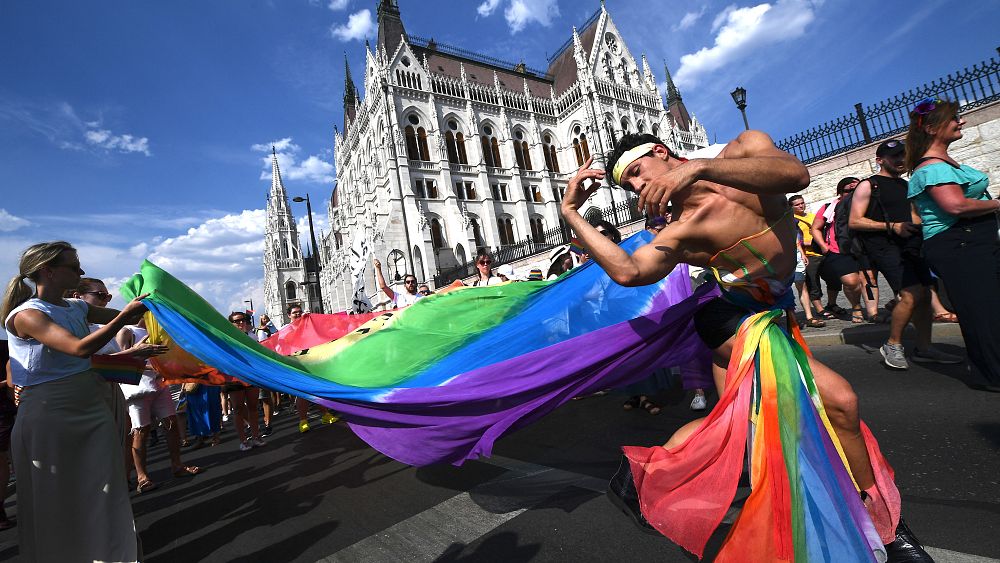
Thousands of participants of the Budapest Pride march wound through the streets of the Hungarian capital on Saturday – with many voicing their anxiety over the increasing pressure on the LGBTQ+ community from the country’s right-wing government.
Before the march, which began in Budapest’s city park, Pride organiser Jojo Majercsik said that while the laws, passed in 2021, didn’t have immediate practical effects, they are now increasingly being used to crack down on LGBTQ+ visibility.
“You can now see how the propaganda law passed two years ago is being applied in practice and how the public discourse has become more angry,” Majercsik said, referring to the 2021 law. “It is now apparent how they are trying to limit the rights of LGBTQ+ people in the media world, in the world of movies, films and books.”
Majercsik pointed to a number of recent instances of media content that depicted LGBTQ+ people being restricted. This week, a national bookseller was fined around $36,000 [€32,000] for placing a popular LGBTQ+ graphic novel in its youth literature section, and for failing to place it in closed packaging as required by law.
Additionally, a 30-second animated campaign video produced by Budapest Pride — in which two female characters meet and touch foreheads — was ruled unsuitable for audiences under 18 by Hungary’s media authority, and may therefore only be broadcast between 10 pm and 5 am.
Such policies, enacted by the governing party of Prime Minister Viktor Orbán, have led rights groups to warn that the rights of sexual and gender minorities are being rapidly drawn back in the Central European country.
On Saturday, a distributed denial-of-service, or DDoS, attack struck Budapest Pride’s official webpage shortly before noon. It was unavailable throughout the day. Several small groups of counterprotesters lined the streets on the Pride march route, waving banners with anti-LGBTQ+ slogans.
But despite such opposition, Kristof Steiner, an emcee at Budapest Pride, said there were signs that younger generations of Hungarians are increasingly tolerant of the LGBTQ+ community.
“There are new laws that are making it nearly impossible for an LGBTQ+ person to live normally. We are being very much marginalised,” he said. “But at the same time, there is a very positive change. I see that the new generation is completely different.”